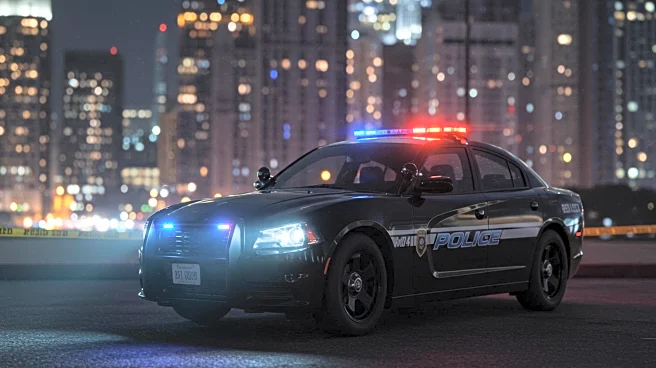What's Happening?
Stephen Miller, President Trump's deputy chief of staff, announced plans to allocate 'thousands more resources' to the ongoing crime crackdown in Washington, D.C. This announcement was made during a visit to Union Station, where Miller, Vice President JD Vance, and Defense Secretary Pete Hegseth interacted with National Guard troops stationed there. Despite the administration's claims of rising crime rates, statistics indicate a significant decline over the past two years. Miller's statement was partly in response to heckling from passersby, which he cited as motivation to intensify efforts against crime and gang activity in the city.
Why It's Important?
The decision to increase resources for crime control in Washington, D.C. reflects the administration's commitment to addressing public safety concerns, despite conflicting crime statistics. This move could impact local law enforcement strategies and community relations, potentially leading to increased security presence and changes in crime prevention policies. The administration's focus on crime may also influence public perception and political discourse, especially in urban areas where safety is a key issue. Stakeholders such as local government officials, law enforcement agencies, and community leaders may experience shifts in their roles and responsibilities as a result.
What's Next?
The administration's plan to deploy additional resources may lead to heightened security measures and increased visibility of law enforcement in Washington, D.C. This could prompt reactions from various stakeholders, including civil rights groups concerned about potential over-policing and its impact on community relations. Political leaders and local officials may engage in discussions to balance crime prevention with civil liberties. The effectiveness of these measures will likely be evaluated in the coming months, influencing future policy decisions and resource allocations.
Beyond the Headlines
The increased focus on crime in Washington, D.C. raises questions about the administration's broader approach to urban safety and governance. Ethical considerations regarding the use of National Guard troops for domestic law enforcement purposes may arise, alongside debates on the balance between security and civil rights. Long-term implications could include shifts in public trust and community dynamics, as well as potential changes in national crime policy.










